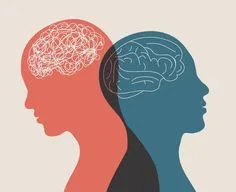
The Power of Nutrition: How What You Eat Shapes Your Health
In a world filled with fast food, processed snacks, and sugary beverages, it’s easy to forget that the food we consume plays a critical role in our health. Nutrition is not just about satisfying hunger; it’s about fueling the body with the right nutrients to function optimally. The saying “you are what you eat” holds a lot of truth—our dietary choices can either contribute to our overall well-being or lead to a range of health problems. Understanding the power of nutrition and making informed choices can have a profound impact on your health.
The Connection Between Nutrition and Health
The food we eat provides the body with the essential nutrients needed for growth, repair, and maintenance of all bodily functions. Here’s how proper nutrition supports health:
- Energy Production: Carbohydrates, fats, and proteins are the macronutrients that provide the body with energy. Carbohydrates are the body’s primary energy source, fats provide sustained energy, and proteins are essential for building and repairing tissues.
- Immune System Support: Vitamins and minerals play a crucial role in supporting the immune system. For example, vitamin C is known for its immune-boosting properties, while zinc is essential for immune cell function. A well-balanced diet rich in fruits, vegetables, and whole grains can help strengthen the immune system and protect against illness.
- Bone Health: Calcium and vitamin D are vital for maintaining strong bones. Calcium is a key component of bone tissue, while vitamin D helps the body absorb calcium. Dairy products, leafy greens, and fortified foods are excellent sources of these nutrients.
- Heart Health: A diet low in saturated fats and high in fiber, fruits, vegetables, and whole grains can reduce the risk of heart disease. Omega-3 fatty acids, found in fatty fish like salmon, are particularly beneficial for heart health, as they help reduce inflammation and lower blood pressure.
- Mental Health: Nutrition also plays a significant role in mental health. Diets rich in omega-3 fatty acids, antioxidants, and vitamins can improve mood and cognitive function. Conversely, diets high in processed foods, sugars, and unhealthy fats have been linked to an increased risk of depression and anxiety.
- Weight Management: Proper nutrition is essential for maintaining a healthy weight. A balanced diet that includes a variety of nutrient-dense foods can help prevent obesity and related conditions like type 2 diabetes.
The Dangers of Poor Nutrition
Poor nutrition can have serious consequences for your health, leading to both short-term and long-term issues:
- Obesity: Diets high in processed foods, sugars, and unhealthy fats can lead to weight gain and obesity. Obesity is a major risk factor for a range of health conditions, including heart disease, diabetes, and certain cancers.
- Chronic Diseases: Poor nutrition is a leading cause of chronic diseases such as heart disease, stroke, and type 2 diabetes. These conditions are often the result of diets high in saturated fats, trans fats, sodium, and sugars.
- Nutrient Deficiencies: A diet lacking in essential nutrients can lead to deficiencies that affect overall health. For example, insufficient iron intake can lead to anemia, while a lack of vitamin D can result in weakened bones and an increased risk of fractures.
- Digestive Problems: Diets low in fiber can cause digestive issues such as constipation and irritable bowel syndrome (IBS). Fiber is essential for healthy digestion and helps regulate bowel movements.
- Poor Mental Health: Diets high in processed and sugary foods can negatively impact mental health, leading to increased risks of depression, anxiety, and cognitive decline.
Building a Nutrient-Rich Diet
Creating a healthy, balanced diet doesn’t have to be complicated. Here are some tips to help you build a nutrient-rich diet that supports your health:
- Eat a Variety of Foods: Incorporate a wide range of foods into your diet to ensure you get all the essential nutrients. Include fruits, vegetables, whole grains, lean proteins, and healthy fats in your meals.
- Prioritize Whole Foods: Choose whole, unprocessed foods over processed options. Whole foods like fruits, vegetables, nuts, seeds, and lean meats are rich in nutrients and free from added sugars, unhealthy fats, and preservatives.
- Watch Portion Sizes: Even healthy foods can contribute to weight gain if eaten in excessive amounts. Be mindful of portion sizes and try to eat in moderation.
- Limit Added Sugars and Unhealthy Fats: Reduce your intake of foods and beverages high in added sugars, trans fats, and saturated fats. Opt for healthier alternatives, such as fruits for sweetness and olive oil for cooking.
- Stay Hydrated: Water is an essential part of a healthy diet. It helps regulate body temperature, aids in digestion, and keeps cells functioning properly. Aim to drink plenty of water throughout the day.
- Plan Your Meals: Planning meals ahead of time can help you make healthier choices and avoid the temptation of fast food or processed snacks. Preparing meals at home also gives you control over the ingredients and portion sizes.
Conclusion
Nutrition is the foundation of good health. The choices you make about what you eat can have a lasting impact on your well-being, influencing everything from your energy levels and immune function to your risk of chronic diseases and mental health. By prioritizing a balanced, nutrient-rich diet, you can empower your body to function at its best and protect yourself against a host of health issues. Remember, the journey to better health begins with the food you put on your plate. Make every bite count, and you’ll be on the path to a healthier, happier life.

